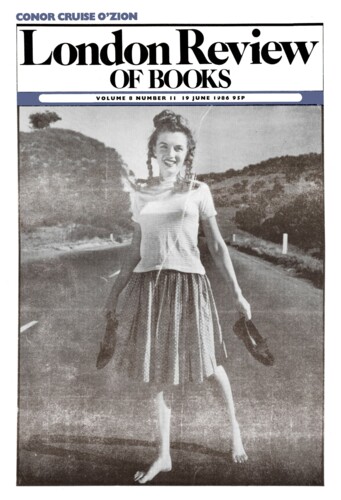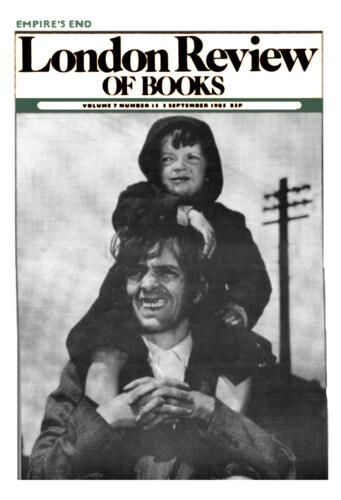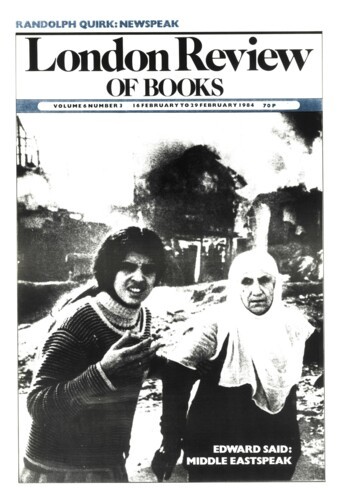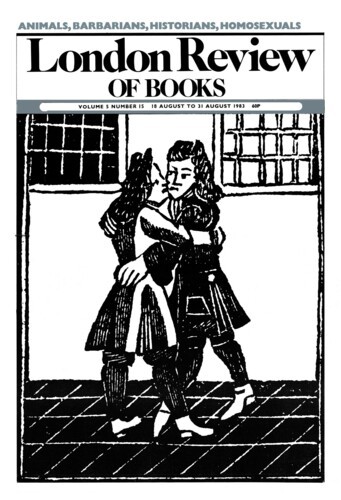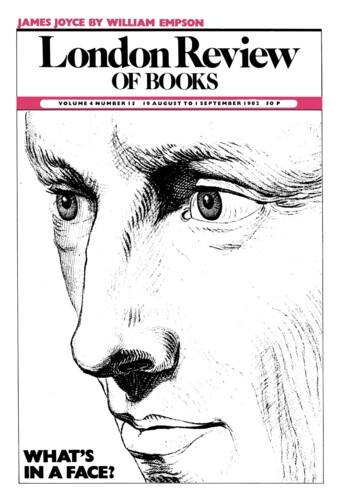Master’s Voice
Stuart Hampshire, 19 June 1986
This is a most unusual book. It is the autobiography of a philosopher who has been as widely and deeply respected as any English-speaking philosopher now alive. Professor Quine is enjoying a vigorous and productive retirement after many years’ teaching at Harvard. His tone here is jaunty, and he expresses steady enjoyment of almost everything that has happened to him along the way. In the age of P.G. Wodehouse there used to be an adjuration, typically shouted from a touchline of schoolboys: ‘Buck up there, Smith.’ Professor Quine has been enormously, almost monstrously bucked up, according to his own account. He strides through this century of war and massacre with scarcely a sideways glance at its more discouraging features. The book is unusual because this record of unqualified success, of unflagging good cheer, does not have the effect on the reader that might have been expected: irritation. On the contrary, there is a charm that is increasingly felt as one reads on to the present day.
